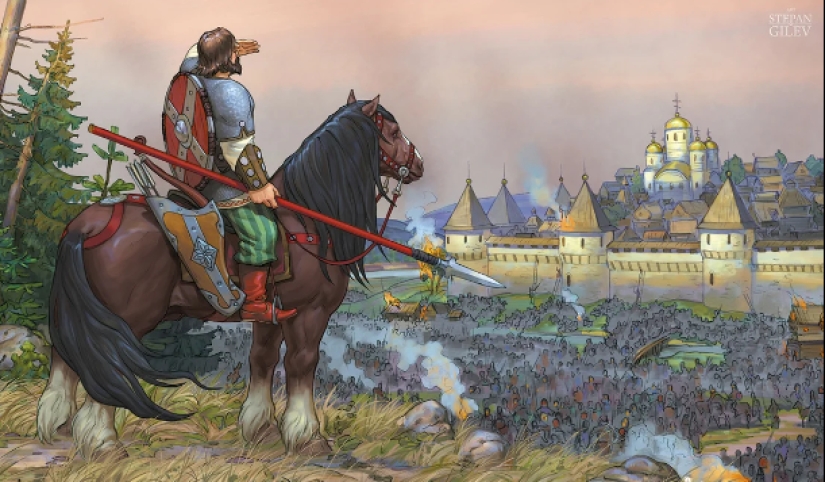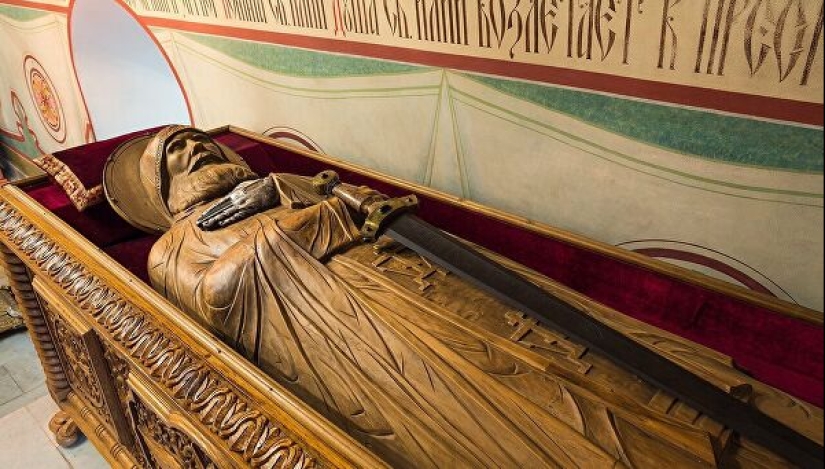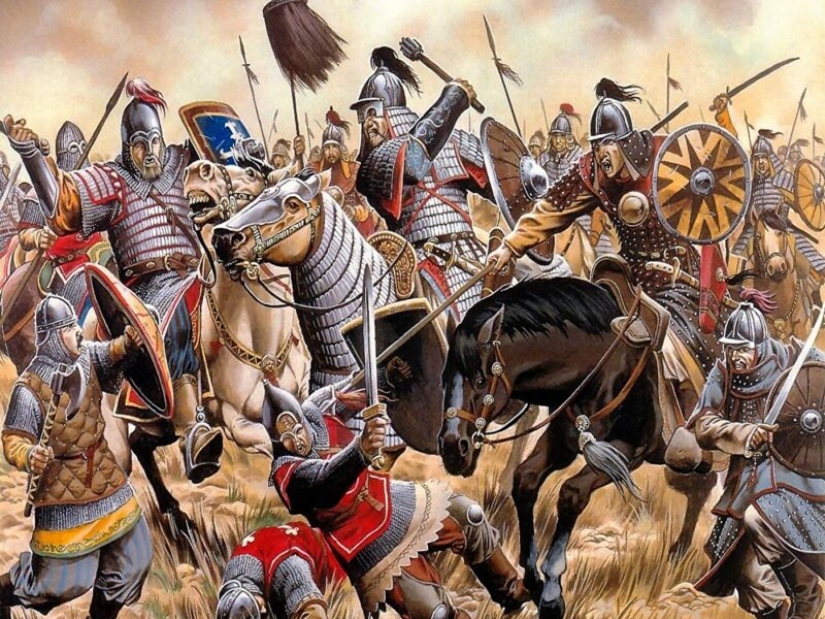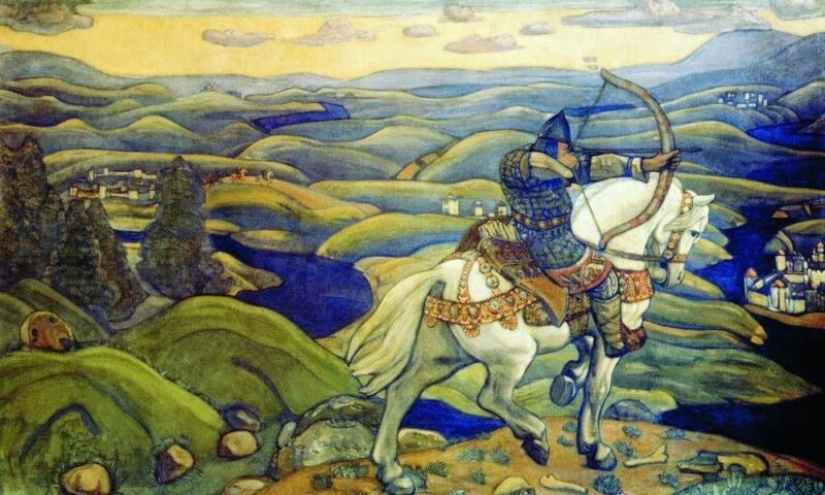The national question, or were our heroes Russian
Categories: History
By Pictolic https://pictolic.com/article/the-national-question-or-were-our-heroes-russian.htmlIt seems that the answer to the question of what nationality the epic heroes belonged to is obvious. But do not rush to write these heroes in Russian, because scientists have every reason to believe that this is a misconception. You can only understand by determining what the Russians were like at that time, and in addition, it is also worth at least roughly indicating the time in which the epic heroes lived.

There were a lot of heroes in Russia, but we are used to three main ones: Ilya Muromets, Dobrynya Nikitich and Alyosha Popovich. They were singled out from the total mass of superheroes of the past because they look like historical figures. There are references to Ilya, Dobrynya and Alex (Alyosha) in historical documents, which gives them credibility.
In the classical interpretation, Ilya Muromets and Dobrynya Nikitich lived at the same time and were the vigilantes of the Kiev Prince Vladimir the Great, who baptized Russia. That is, they lived in the 10th century, when the process of merging the original Rus, whose origin is not entirely clear, with the local Slavic population was just taking place. The Russians who came here could be Scandinavians and even Iranians, no one will tell you for sure where they are from.

In the epics, they talk about heroes as people born on the territory of Russia, but not as Russians. They could be Eastern Slavs, but not Russians, and certainly not Russians, who officially appeared only in the 17th century. Ilya, as a native of the city of Murom, could well belong to the Finnish tribe of Murom. Archaeologists claim that the population of the bogatyr's homeland became Slavic only at the end of the 12th century.
But all this is true only if the heroes actually lived in the 10th century. Historians and archaeologists doubt this and there are good reasons for this. For the first time, Ilya Muromets is mentioned in the sources of the 16th century in connection with his burial in Kiev-Pechersk Lavra. At the same time, there is not a word about Murom, but it is said about the town of Muroviysk (Moravska, Moraviysk) near Chernihiv. Ilya himself is called Murovets and Murovlin, as a native of those places.
The village of Karacharovo is the small homeland of the hero, it no longer appears in documents, but in epics. There is reason to believe that it was generally about the ancient town of Karachev, located in the Bryansk region, which was founded before the Mongol invasion. If Ilya Muromets was born in In Moravsk or Karachev in the 15th and 16th centuries, he was most likely a Lithuanian-an Eastern Slavic who lived on the territory belonging to the Grand Duchy of Lithuania.

The relics of Ilya Muromets in the Kiev Pechersk Lavra
But if the epics approximately indicate the correct data about the years of life of a Murom man and he is actually from the village of Karacharovo, then this still does not make him a Rus. In this case, there is every reason to assume that the epic hero was a native of Volga Bulgaria or a representative of another Turkic people who came to Russia before the Mongol invasion. The fact is that Karacharovo is a typical Turkic toponym.
There is no mention of Ilya Muromets in the chronicles, and he appeared in history after he was buried in the caves of the Kiev Pechersk Lavra. Against this background, the "younger" heroes look more realistic. The Tver chronicle of the 16th century tells about many heroes who served the Suzdal princes.
In the Battle of Lipitsa in 1216, many glorious soldiers died, and the remaining 72, led by Aleksasha Popovich and Timoni of the Golden Belt, went to the place where the city of Alexandrov now stands and built a fortress there. Within the walls of the citadel, the heroes argued and conferred for a long time, after which they decided to enter the service of the Kiev prince Mstislav Udaly.

Under the leadership of this prince, the heroes performed many feats, participated in the campaign against the Tatars in 1223, but every single one died in the battle on the Kalka River. But this is not accurate, since there is information that Timonia died far away in a foreign land, having gone to woo the Scandinavian beauty Sigrid the Proud.
Now let's talk about the nationality of these "younger" heroes. The chronicle calls Timonia and Alexasha Rostov boyars. The glorious warriors acted throughout the north-eastern part of Russia, including in the area of Murom, Suzdal and Ryazan.

It turns out that the epic Russian heroes of the "junior category" are either Slavs who operated in the lands inhabited by Finns, or Finnish "aborigines" who were recently baptized and began to Slavize. It is unlikely that it will be possible to determine the ethnicity of the legendary heroes of Russia more precisely.
Keywords: Warriors | Ancient Rus | Kiev | Slavs | Suzdal | Tatars | Finns
Post News ArticleRecent articles

In the fall of 1972, Bill Yates traveled through the countryside in the vicinity of Tampa, Florida. At that time, he was studying ...

Severe cold weather does not give up its positions. We offer you to admire the magical photos of winter Europe, because snow and ...
Related articles

One of the most interesting documents left by the ancient Greeks is a work called "The Anabasis of Cyrus", translated from the ...

Our life consists of wireless technologies. It's hard to imagine that the ancestors had not that light bulb over my head, but even ...

It is difficult to dispute the fact that the Viking Age left a serious mark on the history of mankind. Without the Scandinavian ...

Vladimir Lyubarov is an artist from the countryside who paints pictures of real life. But he brings amazing characters, birds, and ...